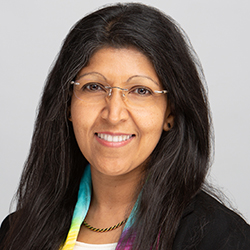On This Page
Counselor Education
The Department of Counselor Education in Fairfield's School of Education and Human Development offers two Advanced Training Certificates:
Substance Use Counseling
This 16-credit, 6-course program is based on competencies established by the Connecticut Certification Board for Drug and Alcohol Counseling. Completion of these courses is required in order to sit for the certification exam that leads to licensing as a licensed or certified alcohol/drug use counselor. NOTE: Required supervised training is not provided through this program.
These courses can also be used to complete annual professional development requirements for many professionals, including licensed professional counselors, marriage and family therapists, social workers, psychologists and addiction counselors.
The 6 required courses are:
- COUN 5350 Introduction to Substance and Process Addictions: This course includes the history and other related issues of substance use and process addiction including the neurobiological and medical foundation and etiology of addiction and co-occurring disorders; process addictions counseling including but not limited to gambling, sex, food, alcohol, or drugs; and basic concepts of terminology, models, ethical issues, substance classifications, effects and associated dangers assessment, diagnosis, and treatment planning with both adults and children. Three credits.
- COUN 6322 Substance Use Counseling: HIV/AIDS and Other Conditions/Disorders: This course will introduce students to substance use and Human Immunodeficiency Virus and Acquired Immunodeficiency Syndrome. Students will learn to assess, motivate, treat, consult and work in an interdisciplinary team to afford these clients a combination of counseling and medical treatment. Students will learn referral techniques to increase client follow through.One credit.
- COUN 6326 Psychopharmacology of Substance Use: This course introduces students to the psychopharmacology of substance use. Students till learn how drugs affect the body, brain function and behavior. Students will also examine the neural mechanisms, and individual biological and psychosocial factors that contribute to drug use and the development of substance use disorders. This course will explore the medications for substance use disorders, and public policy related to medication aregulation and substance use.Three credits.
- COUN 6555 Substance Use Counseling: Skills & Strategies with Diverse Populations: This course focuses on developing counseling skills and strategies as it relates to substance use counseling with diverse populations. An overview of assessment, treatment planning, relapse prevention and recovery will be explored with a focus on motivational interviewing. The course addresses ethics and theories that are fundamental to addiction counseling with emphasis on the relationship between theory and the practice of effective skills with diverse populations. Candidates will reflect on their personal characteristics as a counselor and define the qualities, knowledge, and essential skills to becoming a competent, ethical, culturally aware counselor in training specific to the treatment of substance use. Three credits
- COUN 6557 Co-Occurring Disorders in Substance Use Counseling: This course will cover assessment, diagnosis, and treatment of co-occurring substance use and mental health disorders. Students will develop an awareness of the unique challenges that face clients who are struggling with multiple diagnoses. Students will practice conducting assessments, recovery plans, counseling skills. Ethics and continuum of care issues relevant to the recovery process for this special population. Combines didactic and experiential learning opportunities.Three credits
- COUN 6566 Substance Use and the Family: This course brings together substance use studies and family systems approach. Students are presented with a knowledge base or skills and methods for assessing and treating family systems. The course identifies the addictive and intergenerational patterns within families. Students are encouraged to reflect upon the theoretical frameworks to understand and create interventions for families with substance-use issues. Relational clinical models including developmental, systemic, solution-focused, and narrative approaches are reviewed and evaluated. This course examines the history and methods of treatment models. Issues of social justice are emphasized in a review of socio-cultural and social policy that influence family behaviors and treatment. Three credits.
Program Advisor
Dilani Perera, PhD
Dilani Perera, PhD, is the department chair and a full professor of the Counselor Education Department at Fairfield University. She has been a counselor educator for 14 years. Previous to joining higher education, she worked full-time as a licensed professional counselor and a licensed substance abuse counselor for 10 years in a variety of settings including a minimum-security prison, a hospital, an agency, and a private practice. Dr. Perera has approximately 40 publications which spans the areas of addiction, assessment, multicultural issues, and training of professional counselors and counselor educators. Dr. Perera is a member of many national professional counseling organizations including the International Association for Addiction and Offender Counselor (IAAOC), and NAADAC, The Association for Addiction Professionals. Currently she serves as the assistant editor for the Journal of Addiction and Offender Counseling (JAOC).
Dr. Perera received her doctoral degree in Counselor Education from The University of Toledo, a master’s degree in Guidance and Counseling from Bowling Green State University, and her bachelor’s degree in Psychology from Eastern Connecticut State University.

Dilani Perera
Chair, Clinical Mental Health Counseling and Professor of Counselor Education, CACREP Liaison
x2245
Gainful Employment Disclosure
For federally mandated gainful employment disclosure information, please visit fairfield.edu/gainful.
